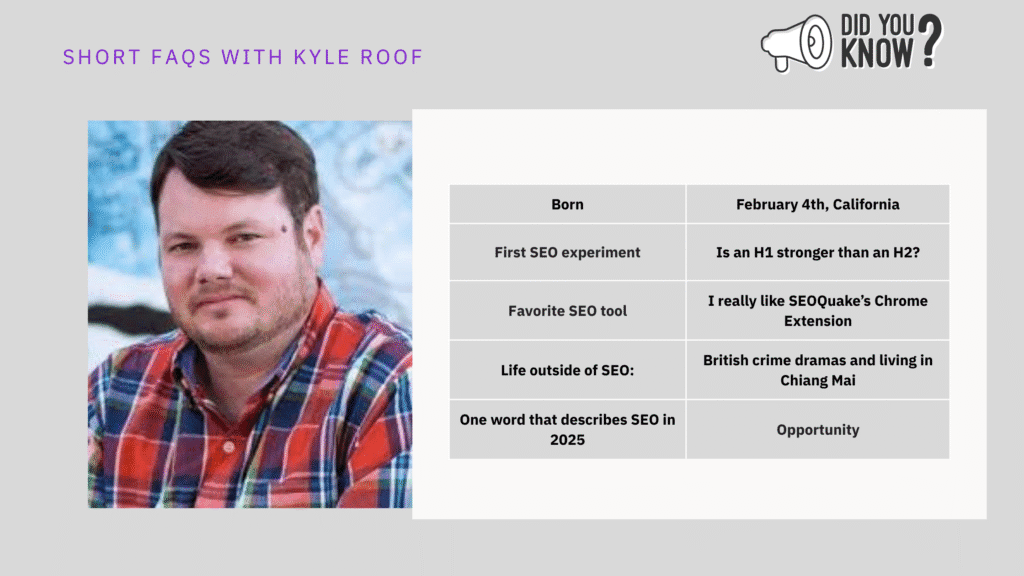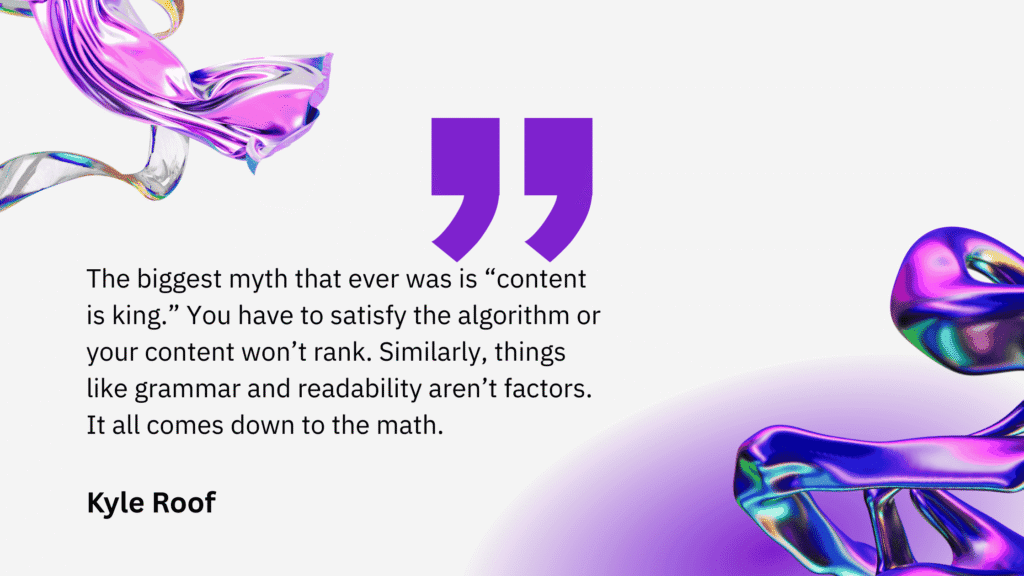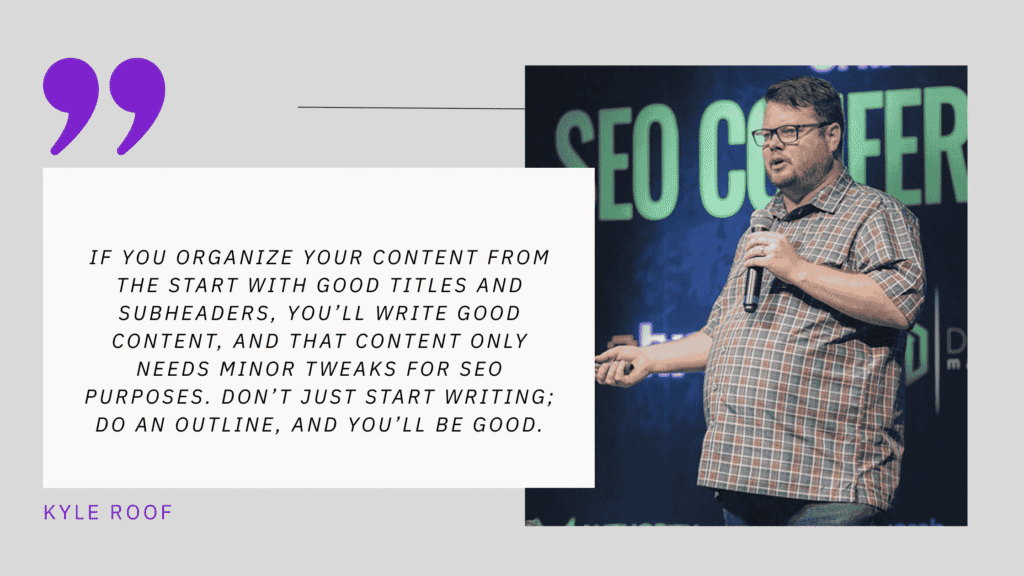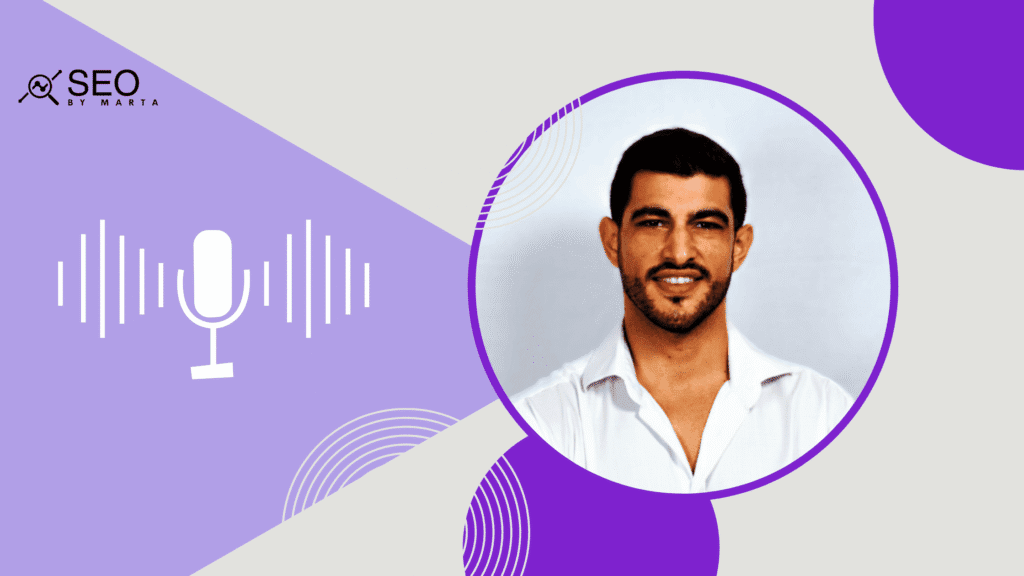About Kyle Roof
Kyle Roof is a search strategist that has become one of the most talked-about figures in the industry for a simple reason: he tests what others only assume. As co-founder of High Voltage SEO and PageOptimizer Pro, Kyle has designed and executed hundreds controlled experiments to uncover the truth behind Google’s ranking signals. His scientific, math-driven approach has debunked long-standing SEO myths and provided a clear blueprint for on-page optimization. Admired by some and debated by others, Kyle has carved out a unique reputation as the SEO who treats Google like a lab experiment — and shares the results openly. Today, he is a sought-after speaker and trainer at conferences around the world, known for transforming raw test data into practical, real-world strategies for businesses.
Interview -Lessons from 400+ SEO Experiments
SEO has never been short on theories, but few people have tested them as rigorously as Kyle Roof. While much of the industry relies on Google’s guidelines or inherited “best practices,” Kyle has spent years putting those assumptions under the microscope. Through more than 400 controlled experiments, he has identified which ranking factors truly drive results and which are little more than myths. His work has often challenged conventional wisdom, sometimes even sparking controversy, but it has also given SEOs around the world a framework grounded in evidence rather than guesswork. In this interview, Kyle shares what he’s learned from years of testing, the ranking signals that consistently matter, and how his findings can be applied in a search landscape now being reshaped by AI and automation.

Q: Hi Kyle, thank you for talking to me today. You’ve run over 400 controlled SEO experiments. Looking back, what were the most surprising findings that completely changed how you think about rankings?
A: In my early tests, I learned that there are different ranking factors that Google looks at and you need to optimize them all individually. This understanding laid the foundation for how I do all my SEO.
Q: Many SEOs still rely on advice that isn’t backed by data. Based on your tests, which of the most common SEO “rules” turned out to be myths?
A: The biggest myth that ever was is “content is king.” You have to satisfy the algorithm or your content won’t rank. Similarly, things like grammar and readability aren’t factors. It all comes down to the math.

Q: You’ve developed a methodology for scientific testing in SEO. Can you explain how you design a controlled experiment and why it’s so important for cutting through misinformation?
A: You want to try to reduce as many variables as possible. The best way to do that is to create identical pages on the same domain. Wait for them to index. You then change one thing on the page that is indexing in the middle. If the page goes up, you have a positive factor, if the page goes down, you have a negative factor.
Q: From your experiments, which on-page elements — titles, headings, keyword placement, content structure — consistently make the biggest difference in rankings?
A: The top factors are title tag, h1, p tags, H2-H3, and URL.
Q: Some of your work has shown that mathematical precision in content optimization outperforms guesswork. How should SEOs today think about balancing creativity with evidence-based optimization?
A: I’ve found that if you organize your content from the start with good titles and subheaders you’ll write good content and that content only needs minor tweaks for SEO purposes. Don’t just start writing, do an outline and you’ll be good.

Q: AI-generated content is flooding the web. Do you believe the ranking factors you’ve validated still apply in an AI-driven content landscape, or are we entering a new testing paradigm?
A: AI is the best thing to happen to these methods. They are working better today than they were even a year ago.
Q: When running experiments, how do you account for Google’s constant algorithm changes? Have you seen factors that remain consistent over time, no matter the update?
A: Google will turn the dials and pull the levers a little bit, but the core part of the algorithm remains the same. The secret is hiding in plain sight. Google shows you the sites that it likes and that should inform your SEO.
Q: Not every SEO has the resources to run hundreds of tests. What practical advice would you give to smaller teams or solo SEOs who want to adopt a “testing mindset”?
A: You don’t need to run hundreds of tests. You just need to pull back the curtain just a little bit. No one will know all things for certain but you can know enough to make an impact.
Q: Your experiments have influenced tools like PageOptimizer Pro. How do you see the role of testing-based SEO tools evolving in the next few years?
A: As long as there is an algorithm, on page tools like PageOptimizer Pro will have a leading place in SEO.
Q: SEO is often described as both art and science. Do you think the industry should lean more heavily into scientific testing, or is there still space for intuition and experience?
A: I think intuition and experience are just different forms of testing. For good SEOs, they will all lead to good results.
Q: Looking ahead to 2026 and beyond, where do you see the greatest opportunities for SEO testing — and which areas of Google’s ranking system still feel like a ‘black box’ to you?
A: We’re having a lot of fun right now testing AI Overviews and LLM insertion. New things like those just create new opportunities. I’m looking forward to the next new thing as it will just mean more for SEOs to do.
Conclusion
Kyle Roof has built his career on questioning assumptions and proving — through hundreds of experiments — what really matters in SEO. His findings cut through the noise of best practices and industry hearsay, reminding us that ranking isn’t magic, it’s math. While some of his conclusions spark debate, there’s no denying the value of his evidence-based approach: it forces SEOs to separate fact from fiction.
What stands out most is Kyle’s optimism about the AI era. Far from making traditional ranking factors obsolete, AI has reinforced the importance of precision in on-page optimization. Titles, headers, structure, and clear outlines remain the foundation — whether content is written by humans or generated by machines.
For smaller teams, Kyle’s message is equally powerful: you don’t need hundreds of tests to see results, just the willingness to experiment and learn. As search evolves with AI Overviews and generative answers, his methodology feels more relevant than ever. SEO may continue to shift, but Kyle’s work shows that grounding strategy in data, not guesswork, is still the surest path to results.




